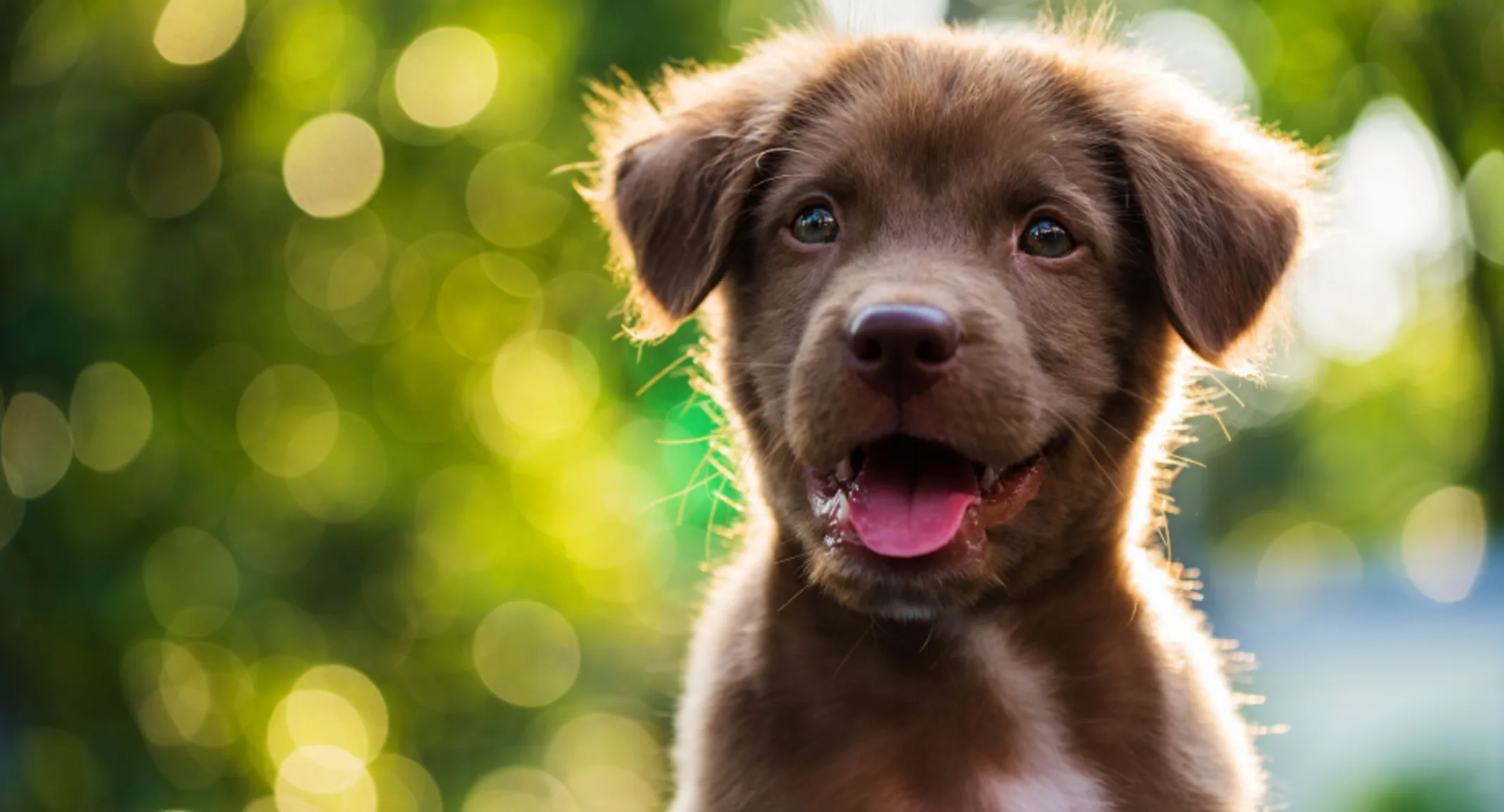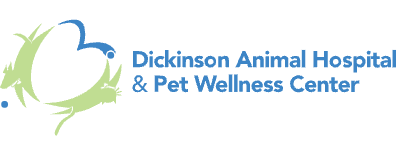Puppies require our attention, training, time, and patient instruction to become well-mannered, confident dogs. There are many actions that a pet owner should take during their puppy’s first year to give them a paw up on wellness for life. Unfortunately, many inexperienced dog owners wait until it is too late to give attention to these needs during the important formative years.
This is why your team at Dickinson Animal Hospital and Pet Wellness Center wants to shed some light on what you should be doing for your puppy’s health. These tips are aimed at raising a happy, healthy dog, and isn’t that every dog owner’s aim?
Puppy’s First Wellness Exam
As soon as you welcome your new puppy home, schedule an appointment with us for a checkup. Many pets come from shelters, Craigslist, and places where their background is unknown. Puppies are susceptible to a variety of illnesses and parasites, which is why they require an in-depth wellness examination, blood work and fecal screening, and their first set of vaccines. This is the foundation of your puppy’s wellness plan going forward.
Signs that your puppy is sick include: diarrhea, vomiting, discharge from eyes or nose, not eating or drinking, and lethargy. Call us right away if your puppy seems unwell.
Time for Training
Training begins with your puppy as soon as they are weaned, or about 8 weeks of age. This training is first based on teaching your puppy where to go potty through the use of positive reward training. This form of training relies on giving your dog rewards for every command they fulfill, while ignoring or redirecting the behaviors you don’t want.
Along with teaching your puppy house training skills, you will need to instruct them on basic commands, such as ‘sit’, ‘stay’, ‘drop it’, and ‘come’. Make sure everyone in your household understands the rules for your puppy to follow, and use repetition and patience during this time of training.
Through the use of a crate and baby gates, you can encourage your puppy to understand where their “den” is, which helps them during this initial training phase (and with fewer accidents).
Handle Your Puppy Often
Sometimes, people make the mistake of not handling their puppy or allowing others to. This early handling is imperative to later socialization and bonding more closely with their owner. Use a gentle approach to handling your young pup, cuddling them and playing with them. Teach children in the home how to safely handle the puppy to increase the bond between them and get your pet used to children.
Socialization Is a Must
Once your pup is fully vaccinated, start taking them over to friends’ and family members’ homes. Consider enrolling your puppy in a training and socialization class for their age group. Introduce your puppy to other pets and strangers in a supervised way, ensuring that the other pet is vaccinated, trained, and good with puppies.
Through socialization, your puppy will thrive and become a well-mannered, friendly, and confident doggo.
Great Nutrition for Healthy Development
You are what you eat, and when puppies are growing, they need a diet that is formulated for their age. Discuss with your veterinarian what types of nutrition your puppy needs. Look for puppy-specific formulas to ensure getting all the essentials they need for healthy development.
In Summary: What You Should Be Doing for Your Puppy’s Health
We’ve covered the basics of raising a puppy, but there are other factors in a dog’s development that cannot be overlooked such as exercise and play. Read up on giving your puppy a good start in life and talk to our team. We are here to help you give your new friend the best life possible. Call us for more information or to schedule an appointment.

